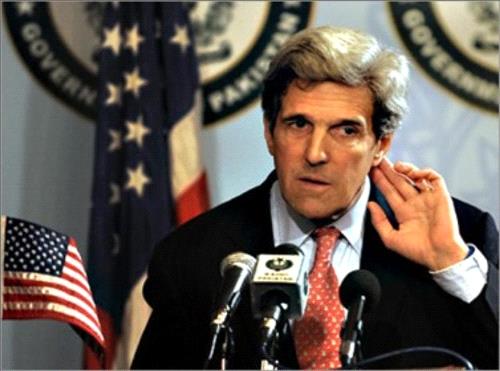Ammon News - UN-Arab League envoy to meet delegations separately, as rebels demand regime signs plan for transitional government.
Face-to-face talks between the government of President Bashar al-Assad and the Syrian opposition have been shelved, after opposition delegates demanded Damascus agrees to the creation of a transitional government as a pre-condition.
The start of the talks in Switzerland, called Geneva II, were on Friday due to bring together representatives from Assad's regime and the main opposition bloc for the first time.
However, the two sides will not address each other directly after the opposition demanded the government endorses the Geneva communique of June 30, 2012 calling for a transitional governing body to be established.
Alessandra Velluci, a UN spokeswoman, said: "There are no Syrian-Syrian talks at the moment. I cannot tell you anything about what will happen in the next few days."
Instead, the UN-Arab League envoy to Syria, Lakhdar Brahimi, will meat each side separately and shuttle between them.
"We have asked the UN envoy for the regime to sign on to Geneva I and we will not meet them until they do," one delegate told the Reuters news agency.
The government says it will not discuss removing Assad, while the opposition says it will not stay unless Assad's removal is the basis for talks. One of the government delgates said on Friday that Assad would remain president until the next election, when anyone could run for election.
In his remarks on Thursday, Ahmed Jarba, head of the National Coalition of Syrian revolution and opposition forces, said the international community now realised that Assad could not stay in power.
"We have started to look into the future without him. Assad and all of his regime is in the past now. Nobody should have any doubt that the head of the regime is finished. This regime is dead," Jarba said.
He said the negotiations would be long and difficult, and would look at all the "core issues" as a package deal, including the creation of a transitional governing body.
"This is the basis of our negotiations and we will demand it," he said.
Syria government officials, who left talks with a UN envoy on Thursday evening without making any statement, have insisted that Assad is not going anywhere.
John Kerry, the US secretary of state, also said there was no sign Assad was ready to quit, although he insisted the Syrian leader had no place in his country's future.
"This is a man who has committed war crimes and still somehow wants to claim legitimacy to be able to govern the country," Kerry said in an interview with Al-Arabiya television.
But Kerry said there could be a place for officials from Assad's government in a transitional government as long as they "do not have blood on their hands".
Many difficulties
Few expect the peace talks to result in a breakthrough to end the war, since Sunni religious fighters who disdain the Western and Arab-backed opposition are not present at the talks, and nor is Iran, Assad's main regional backer.
Officials hope they can salvage the process by starting with more modest, practical measures to ease the plight of millions of people on the ground, especially in areas cut off from international aid.
More than 130,000 people are believed to have been killed in the fighting, nearly a third of Syria's 22 million people have been driven from their homes, and half are in need of international aid, including hundreds of thousands in areas cut off by fighting.
Against this backdrop, the UN humanitarian chief has urged the Syrian delegations to remember their people and try to reach local ceasefires to allow vital food and medicines to reach millions of civilians in dire needs.
